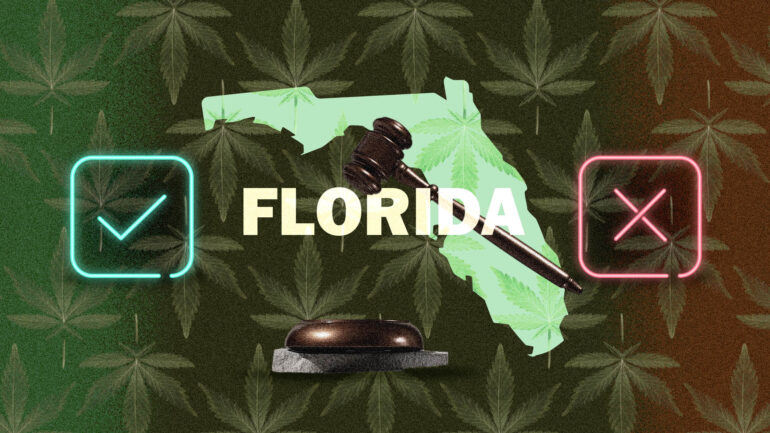Weed is legal in Florida for medical use, but completely illegal for recreational use with fairly harsh penalties.
You can only get marijuana legally if you have a qualifying medical condition and have gotten your Registry Identification Card from the Florida Medical Marijuana Use Registry, and then only from a licensed medical marijuana treatment center.
The qualifying conditions include cancer, glaucoma, epilepsy, PTSD, HIV/AIDS, Lou Gehrig’s disease, Crohn’s disease, Parkinson’s, multiple sclerosis, chronic non-malignant pain or other comparable conditions.
If you haven’t gone through this whole process, then cannabis is not legal to use. Possessing less than 20 grams is a misdemeanor, with a maximum penalty of one year in jail and up to a $1,000 fine.
If you have over 20 grams, then it is considered a felony, with a punishment of up to 5 years in jail. There are some specific regions where you may be treated more leniently for possession, but this is very much up to the cop’s judgment.
Is Weed Legal in Florida?
Weed is legal for medical purposes in Florida but illegal recreationally. Possession of under 20 grams is punishable by up to a year in jail and a $1,000 fine.
Is Recreational Weed Legal in Florida?
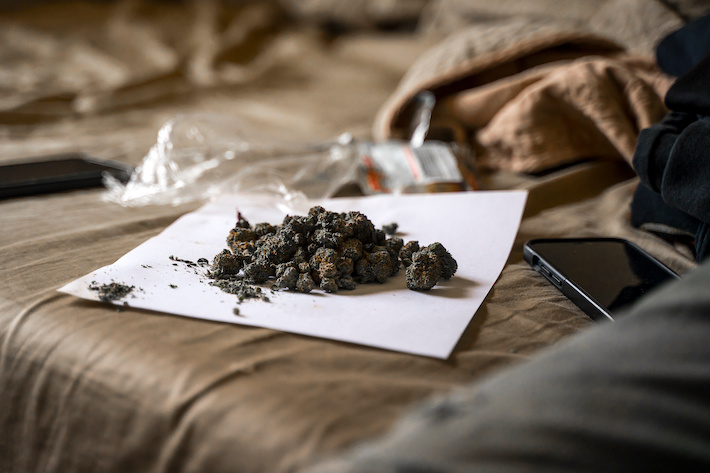
There is no Florida recreational weed (i.e. “adult use”) law, which means it is illegal to use non-medically. The substance isn’t even decriminalized (in most areas), so even possession can carry harsh penalties. Only medical marijuana is legal to possess.
Penalties for Possession of Weed in Florida
The penalty for possession of (non-medical) marijuana in Florida depends on how much you have. If you have under 20 grams, this is considered a misdemeanor and is punishable by up to a year in jail and a maximum fine of $1,000.
If you have over 20 grams, it’s considered a felony and punishments get more severe. This is punishable by a maximum sentence of five years in jail and a fine of up to $5,000. Unless you’re selling within 1,000 feet of a school, college, park or other specified area, these punishments are just as harsh as those for dealing.
Is Medical Marijuana Legal in Florida?
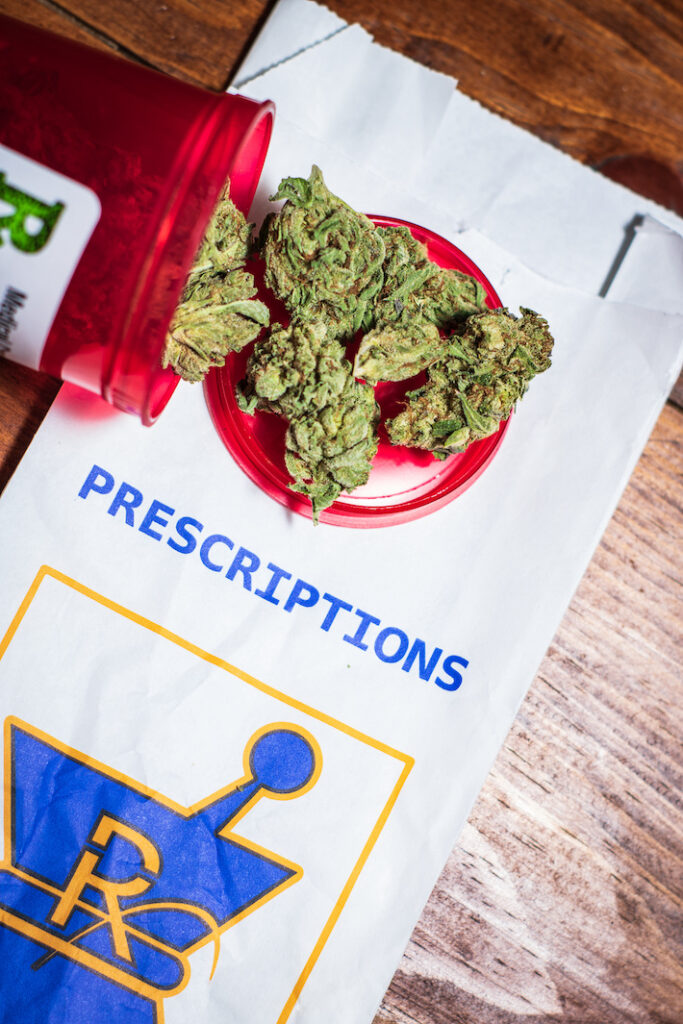
Medical marijuana is legal in Florida for specified conditions. When the original medical marijuana law was passed in 2014, only very low THC marijuana could be used and only for cancer and epilepsy patients.
However, a few additional Florida medical marijuana laws passed between 2016 and 2019 (Amendment 2, Senate Bill 8A and Senate Bill 182), and now the list of qualifying conditions is bigger, the previous 90-day waiting period has been removed and smokeable cannabis flower can now be purchased through the program.
How Much Marijuana Can Medical Patients Possess?
Approved medical marijuana patients can possess up to four ounces of marijuana in Florida. There are some additional requirements it’s good to keep in mind.
Firstly, a physician can’t issue a recommendation for more than three 70 day supply limits of marijuana at one time, and secondly, patients may only purchase up to 2.5 ounces of cannabis every 35 days. This means that at a single point in time, physicians can’t recommend more than 15 ounces over the following 210 day period.
How to Get a Medical Marijuana Card in Florida
Getting a medical marijuana card in Florida can be a lengthy process, despite the simplifying bills passed in the late 2010s.
For permanent or seasonal Florida residents, a qualified physician must diagnose the person with one of the approved conditions for medical marijuana:
- Cancer
- Epilepsy
- HIV/AIDS
- Amyotrophic lateral sclerosis/Lou Gehrig’s disease
- Crohn’s disease
- Glaucoma
- Post-traumatic stress disorder (PTSD)
- Chronic seizures
- Parkinson’s disease
- Multiple sclerosis
- Medical conditions of the same kind or class, or comparable to, any of those listed above
- Chronic non-malignant pain
- A terminal condition diagnosed by another physician
After the diagnosis, the physician will add the patient to the Florida Medical Marijuana Use Registry at the Office of Medical Marijuana Use (OMMU). OMMU then sends a temporary username and password so the person can join.
Then the individual has to complete an application to get their Registry Identification Card, including a 2 × 2 inch passport-type, full-face, color photograph. It costs $75 for the application, and if you submit online it takes an average of 10 business days to be approved. Paper applications take an extra 3 to 5 days.
If the patient is a minor, they must designate a caregiver to purchase the marijuana for them, and they must submit a caregiver application in addition to the patient’s application, with another $75 fee.
Out of state medical marijuana cards are not accepted.
Can You Consume Medical Marijuana in Public in Florida?
It’s illegal for medical marijuana patients to consume marijuana in public, with the exception of low-THC weed in a non-smokeable form. As this suggests, you also can’t smoke CBD flower in public in Florida.
If you are found to have done this, it is considered a misdemeanor of the first degree, which carries a definite term of imprisonment of up to one year or a fine of up to $1,000.
Can You Drive After Consuming Medical Marijuana in Florida?
No, even if you have a medical marijuana card, you can’t drive after consuming marijuana in Florida. There are also no specified limits (as in Colorado, for instance), so you can be punished if there is any detectable marijuana in your system.
In addition, Florida has an implied consent law, meaning that by driving a vehicle in the state, it is implied you have consented to breath, urine or blood test.
If you refuse, your driver’s license will be suspended for one year, and the refusal to submit to the test in itself is admissible as evidence in any resulting court proceedings. If you refuse again, it is considered a misdemeanor of the first degree, and you’ll get an 18 month license suspension, up to one year in prison or a fine of up to $1,000.
However, these punishments are just for refusal to submit to the test, not the DUI itself. These penalties increase for subsequent offenses.
For a first offense, you can receive no more than six months in jail, a 180 day suspension of your license (up to one year), up to 10 days of vehicle impoundment, a mandatory 50 days of community service, up to one year of probation, a fine of $500 to $1,000 dollars and mandatory DUI school prior to license reinstatement.
RELATED: Is Driving High Really Dangerous?
For a second offense, the jail time increases to a maximum of nine months and the fine increases to $1,000 to $2,000.
Punishments are also generally stricter if the second offense is within five years of the first.
In these cases, there is a mandatory 10 days of jail time, your vehicle is impounded for 30 days, your license will be suspended for five years, you’ll get a mandatory ignition interlock device (IID) for a year, you must complete DUI school and remain in the supervision program for the suspension period, and you can’t consume alcohol for one year before your license is reinstated.
For a third conviction within 10 years of a previous conviction, a DUI is considered a third-degree felony. This carries a mandatory sentence of between 30 days to five years, a $2,000 to $5,000 fine and a ten-year license suspension.
Fourth or subsequent offenses are also considered third-degree felonies, with imprisonment of up to five years, a minimum of $5,000 in fines and a mandatory permanent license suspension.
Is Delta-8 THC Legal in Florida?
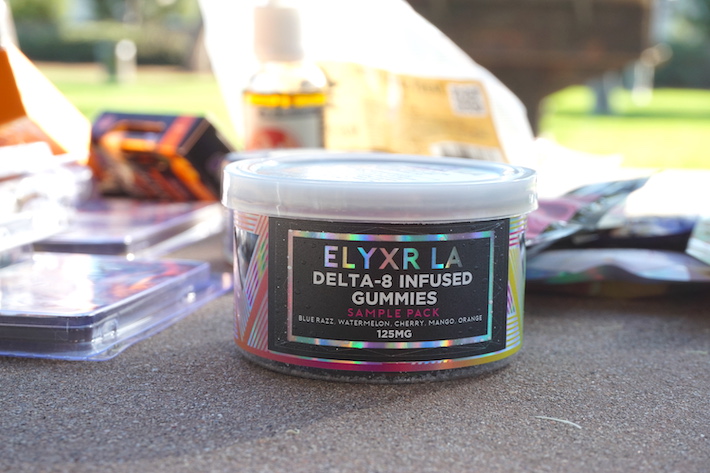
Delta-8 THC is legal in Florida. Following the passage of the 2018 Farm Bill by the federal government, Florida passed SB 1020, which essentially removes the cannabinoids in hemp from the state’s controlled substances list, provided they meet the 0.3% delta-9 THC by dry weight limit imposed by the Farm Bill.
This means that delta-8 THC products – and indeed, hemp delta-9 ones – are legal in Florida. This means “is THC legal in Florida?” doesn’t really have a simple answer: if it’s from cannabis, it’s illegal; if it’s from hemp, it is legal.
Is Weed Decriminalized in Florida?
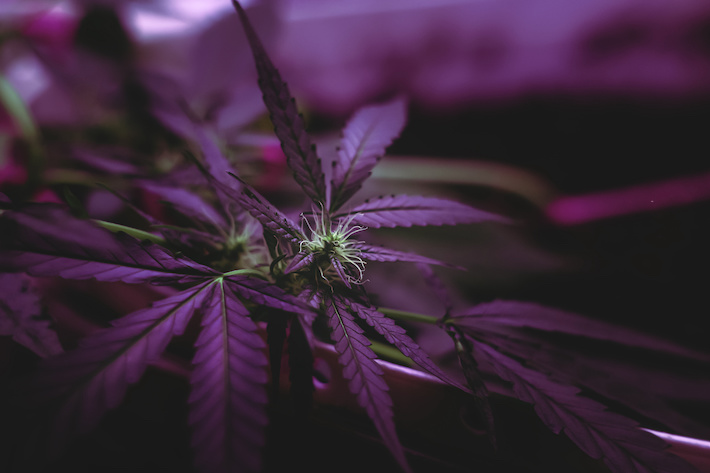
After learning a little about Florida weed laws, you might be wondering: is weed decriminalized in Florida? The answer to this isn’t that straightforward either.
At the state level, the answer is a simple “no.” However, from 2015 onwards, several specific cities and counties in Florida have vaguely decriminalized marijuana. These regions generally give cops the option to issue a $100 fine instead of making arrests when the individual has less than 20 grams of pot. These fines usually increase for subsequent offenses.
The regions affected are:
- Miami-Dade County
- Miami Beach
- Hallandale Beach
- Key West
- West Palm Beach
- Broward County
- Palm Beach County
- Volusia County
- Tampa
- Orlando
- Osceola County
- Alachua County
- Port Richie
- Sarasota
Laws like this make questions like “is weed legal in Orlando?” and “is weed legal in Miami?” a bit more complicated than a yes-no answer.
Is Growing Weed Legal in Florida?
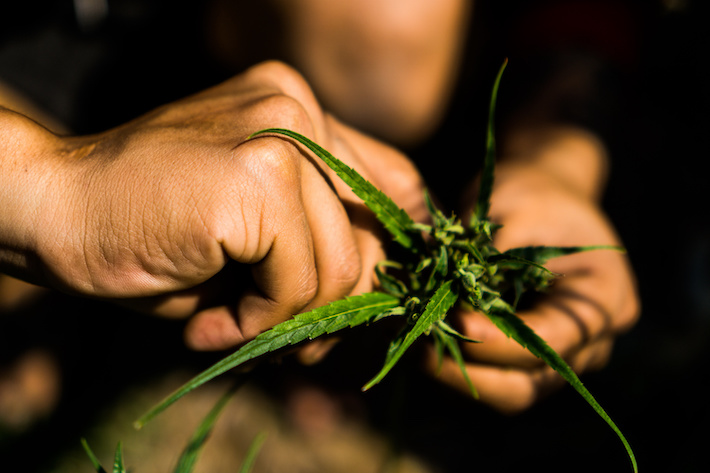
It is not legal to grow weed in Florida. This is generally classed as a third-degree felony, which is punishable by up to five years in prison and a $5,000 fine.
In cases where the accused has more than 25 cannabis plants in their possession and they are in actual or constructive possession (i.e. are personally possessing or are in the same general area as the offending plants without necessarily owning it), it can be treated as a second-degree felony, carrying a sentence of up to 15 years in prison.
When Will Weed Be Legal in Florida? The Future Outlook
Despite having a medical marijuana program in the state, legal changes surrounding cannabis have been slow, and despite some Florida weed legalization efforts, the outlook for the future doesn’t look great.
While some efforts have been made recently to increase penalties, the most concerning legal development is the attempt to prevent future ballot initiatives to legalize marijuana. This bill died, but it’s concerning that it was tried at all.
However, it’s important to remember the national context, in which federal-level legalization is looking more common each year.
While Florida recreational weed laws would likely have to be fought for or the state would have to be dragged into the 21st century by the rest of the country, it’s hard to imagine the current situation persisting too long.
If the current patchwork of decriminalization continues, this could also force the state’s hand.
Conclusion: Weed Isn’t Legal, But That Never Stopped People Before
So you can only legally get weed in Florida if you’re an approved medical patient and at least a seasonal resident, but the pressure from the rest of the country will likely continue to mount in coming years.
At present, being caught with marijuana (in most places) for recreational use could land you in jail, but hemp delta-8 and delta-9 are legal, and some politicians are pushing for the Sunshine State to go further. It might take some time, but things will improve eventually.
